Indoor air quality is a concern of many residents in the Jacksonville area, and for good reason. Studies by the EPA indicate that concentrations of pollutants in indoor air can be two to five times higher than those found outdoors. In some cases, indoor air pollution could even be 100 times worse than outdoor air. The solution for tackling poor air quality is better air filtration.
Allergens and Pollutants in Your Home
You may be surprised to learn that there is a wide variety of pollutants lurking in your home that you cannot see, including:
- Dust
- Dust mites
- Pollen
- Mold spores
- Pet Dander
- Bacteria
- Viruses
- Smoke
- Cooking odors
- Volatile organic compounds (VOCs)
If you have greater concentrations of these contaminants in your indoor air, you may experience an increase in allergy symptoms or respiratory illnesses. Continued exposure can harm your lungs or immune system.
Air filtration and air purifying systems can filter out allergens and pollutants from the air in your home. Some are more efficient than others on removing certain types of contaminants. Therefore, it is essential to understand the different types of filtration available for residential heating and cooling systems.
How Air Filtration Systems Work
The component at the heart of most air filtration systems is the air filter that is used as a basic air cleaner. Your home’s heating and cooling system uses an air filter to prevent contaminants like dust, danger, and pollen from entering your system and being recirculated in the air. Contaminants are trapped as the air passes through the filter. The materials used in the filter help determine its MERV rating. A filter’s MERV rating determines how efficient it is at trapping contaminants.
- Filters with a lower MERV rating between 4-7 are usually made from fiberglass, which can only trap larger particles. These filters are suitable for trapping contaminants like pollen or dust mites.
- Filters with MERV ratings between 8-14 are made with pleated paper or polyester. Depending on the rating, these filters can trap smaller particles. These filters are suitable for trapping dust mites, pollen, mold spores, pet dander, bacteria, and tobacco smoke.
HEPA filters are also considered a basic air cleaner. They are high-efficiency filters that trap finer particles. Not all HVAC systems are designed to handle a HEPA filter.
Why Choose Fresh-Aire UV?
Basic air filtration using your heating and cooling system’s air filter may not be enough to completely filter all contaminants from the air in your home. If it isn’t, your home’s indoor air quality suffers. A better air filtration system is one that utilizes ultraviolet light technology in addition to an air filter.
The Fresh-Aire UV is a whole-house air filtration system installed inside your HVAC system. It uses UV light and an activated carbon air filter to destroy and trap contaminants that basic air filtration methods cannot. The UV light sterilizes bacteria, viruses, and mold spores as the air runs under it. Odors and VOCs in the air are also neutralized to make the air in your home cleaner and safer.
If you have indoor air quality concerns in your home, you have a better option. Contact Snyder Air Conditioning, Plumbing & Electric to learn more about the benefits of having a Fresh-Aire UV air filtration system installed in your home.


